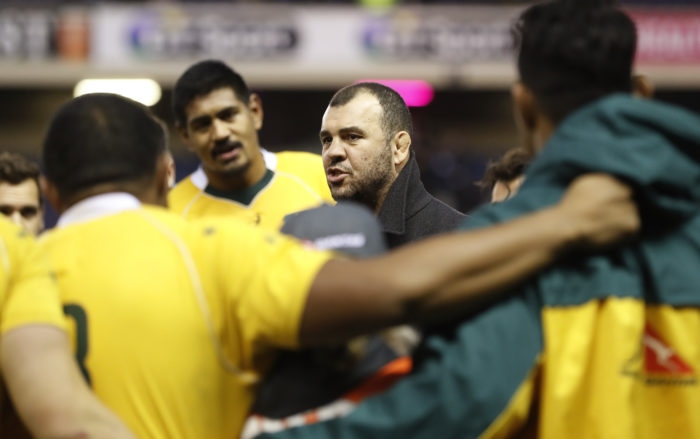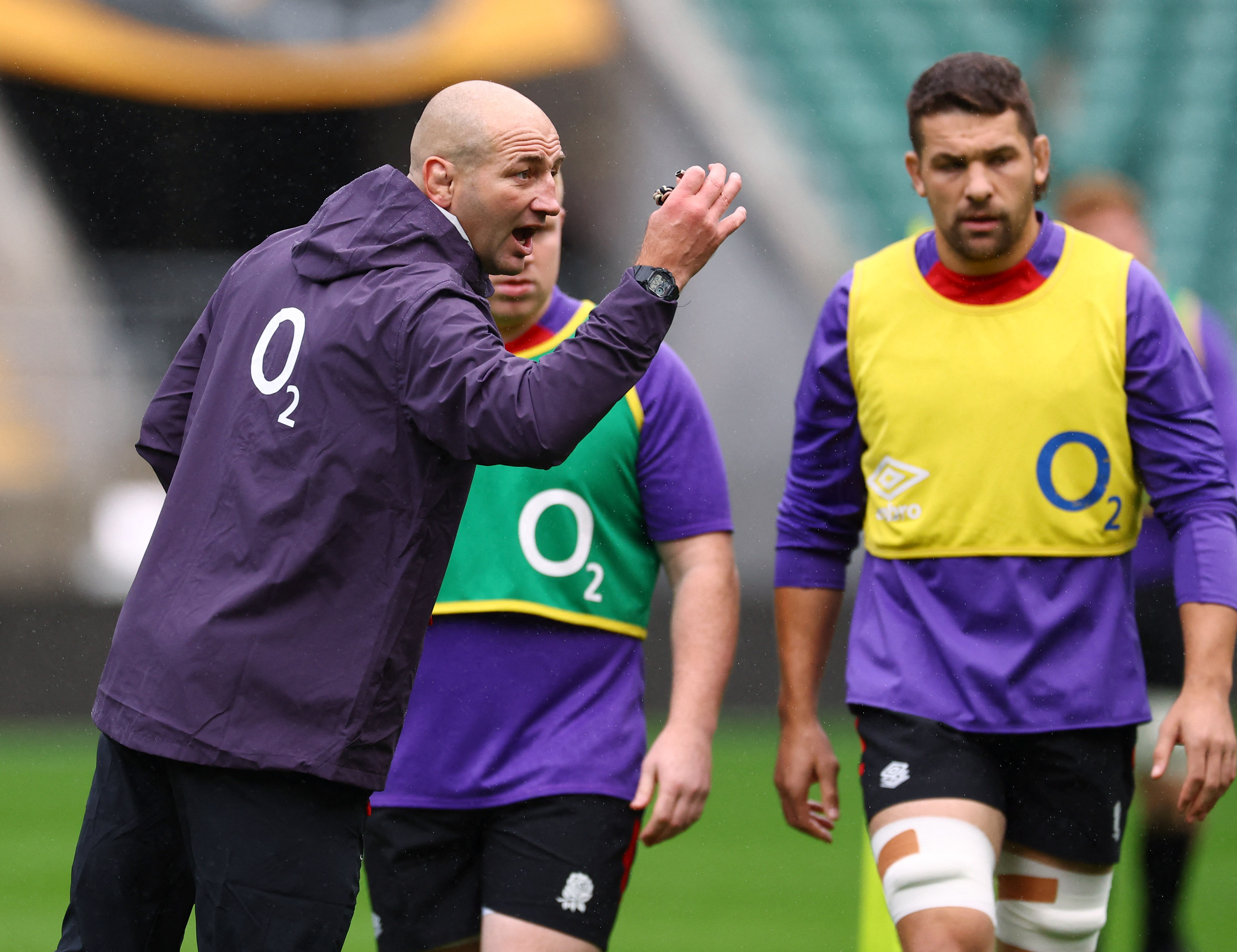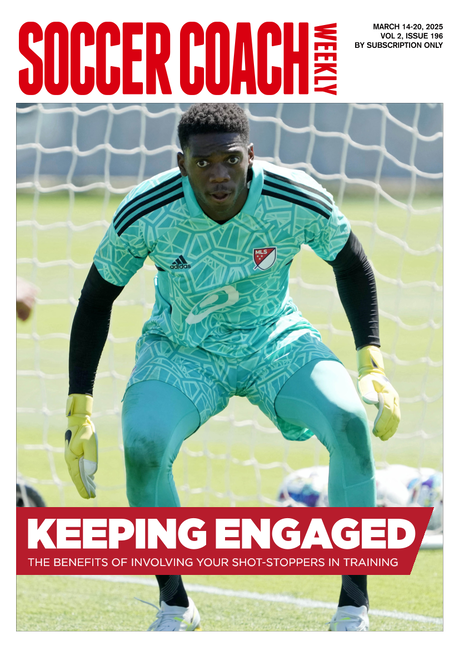Help players cope with match day pressure

Michael Cheika team talk. He will also be speaking to players personally before the start of the game
Many rugby players under-perform on match days because they are too nervous. However, you can coach them to use coping strategies to harness their energy, reduce tension and overcome fears of poor performance.
Managing pressure for players
"Choking" is a common term to describe a decline in a player's or team's performance due to the pressure of competition.
One of the key roles you have as rugby coach is managing the pressures on the players, giving them a lift or push when they need it. You need to balance anxiety and arousal so your players perform at their best.
Arousal – get the right drive
Performance can be said to be a function of skill levels multiplied by arousal. This is known as "Drive theory".
Arousal is how alert the player is in terms of his physical and mental state. So, nervous feelings can be good. On the other hand, an over-aroused player can make mistakes.
In rugby, a hooker needs to be calm when he is throwing in the ball, but explosive at scrum and ruck time. In fact, all players need to have calming strategies in place when they are about to perform a skill, such as kicking a goal, starting a backline move or throwing in the ball.
Pre-match coping strategy
Because different players feel the stress of the big game in different ways, you need to have a range of strategies available. This way, when faced with what is perceived to be a controllable stress, your players will have a plan to deal with it.
You can help develop coping plans in advance. Let's say one of your players is abused by an opponent. His plan may be simply to walk away or use the abuse to fire himself up to play harder.
However, when a player is worried about a less controllable stress, such as a lingering injury or a poor bout of form, he might need a more emotionally-based coping strategy.
Here you can offer support or help them distract themselves from the worries.

Be empathetic not sympathetic
You can look after the stresses a rugby player faces by showing an understanding of their "pain". By sharing their feelings, the nervous player can start to know that they are not the only person in that state.
This is not sympathy, which is being sorry for someone. Sympathy can easily patronise the player, making them feel worse about the situation. You want to show empathy instead.
For example:
- Player: "Coach, I'm worried about today's game. I'm sure I'm going to fluff my kicks."
- Sympathetic coach: "I know how you feel, but when I was worried I thought about all the good games I had when I kicked well and it worked for me."
- Empathetic coach: "Is this worst you have felt? What is the root of the worry? When did you start feeling worried? What can I do to help?"
If they then ask for advice, your response can guide them to positive thoughts.
Newsletter Sign Up
Coaches Testimonials

Gerald Kearney, Downtown Las Vegas Soccer Club

Paul Butler, Florida, USA

Rick Shields, Springboro, USA

Tony Green, Pierrefonds Titans, Quebec, Canada
Subscribe Today
Be a more effective, more successful rugby coach
In a recent survey 89% of subscribers said Rugby Coach Weekly makes them more confident, 91% said Rugby Coach Weekly makes them a more effective coach and 93% said Rugby Coach Weekly makes them more inspired.
Get Weekly Inspiration
All the latest techniques and approaches
Rugby Coach Weekly offers proven and easy to use rugby drills, coaching sessions, practice plans, small-sided games, warm-ups, training tips and advice.
We've been at the cutting edge of rugby coaching since we launched in 2005, creating resources for the grassroots youth coach, following best practice from around the world and insights from the professional game.













